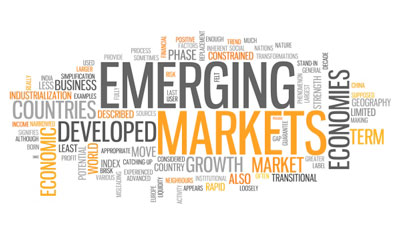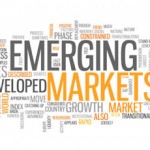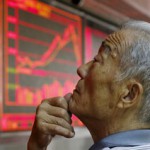Investors are pushing into Emerging-market stocks; 20% rise over the past six months

China’s economy is inexorably slowing. Turkey’s sprawling post-coup purge continues apace. Western sanctions against Russia will remain in force for as long as Moscow keeps meddling in Ukraine. Brazil’s brief Olympic distraction is over, so it’s back to the business of dealing with acrippling recession and wrenching political turmoil (paywall). South Africa’s finance minister is facing arrest for the third time this year.
Emerging-market stocks, broadly speaking, have risen by more than 20% over the past six months, comfortably outperforming their counterparts in the developed world. Russia’s benchmark Micex stock index is trading at all-time highs. Yes, that Russia.
Not to be outdone, bond funds have more money invested in emerging-market debt than they have for four years. So far this month, institutional investors are buying emerging-market bonds at a weekly pace 10 times greater than the average for the first half of the year, according to the Institute of International Finance.
The rally has paused this week, so it seems a good time for reflection. Namely, is this nuts?
The bull case: We’re just getting started
With nervous central banks in Europe, Japan, and elsewhere revving their printing presses, it’s no wonder that asset prices are rising, even for risky securities in risky places. Interest rates on the safest securities—developed-market government debt and high-grade corporate bonds—are languishing at historic lows, offering little in the way of future returns.
This creates a “thirst for yield” that is pushing investors into emerging-market assets, according to Rollo Roscow, a fund manager at Schroders in London. After taking the cheap money that central banks are showering on their financial systems and buying all the obvious stuff, valuations in many developed markets are stretched. Says Roscow, “Who’s to say that emerging markets shouldn’t re-rate, too?”
Indeed, even after the recent rally, the discount in valuation between emerging and developed markets, as measured by price-to-earnings ratios and the like, remains wide (pdf). And it’s not as if political turmoil is limited to emerging markets—see Brexit, Donald Trump, andburkinis. Why should investors pay such steep prices for the supposedly safe assets?
As long as monetary policymakers are worried about their moribund economies, interest rates will stay low and liquidity will flow to needy banks and other borrowers. This, the thinking goes, suggests that the emerging-markets rally has further to run.
The bear case: A crash is coming
Not so fast. The steady climb in emerging-market assets abruptly stopped when an official from the US Federal Reserve warned that “the market is complacent” about the possibility of a rate hike this year. Lifting the world’s most important benchmark interest rate up off the floor would shatter the “lower for longer” consensus and force a broader rethink of investors’ risk-reward calculations.
What’s more, assets in many emerging markets are relatively cheap for a reason. Recessions in Russia and Brazil will end, eventually, but robust growth after that is far from assured. China’s erratic, ambiguous commitment to reforming its dangerously unbalanced economy—a crucial consumer of the commodities that underpin resource-reliant emerging markets—is another huge risk to valuations.
Although “sell everything” may be too alarmist, emerging-market assets are more idiosyncratic than many investors might appreciate, especially those used to buying broad-based indexes in developed markets. “We try not to do too much top-down focus,” says Schroder’s Roscow. Instead, in emerging markets, it’s better to “focus on company-specific drivers, blended with a little bit of a macro view.”
This is wise advice for some of the markets he is currently “overweight.” These include Russia and Romania, which are positively pedestrian compared to another market the asset manager has identified as an “interesting reform story” in his quest for returns: Georgia, where the stock exchange features only a handful of listed companies that often go days, if not weeks, without trading.
Source: Quartz





























